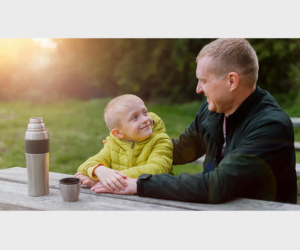Parenting is a journey that’s deeply influenced by our own upbringing. Think about it – the way our parents raised us often becomes our default setting when we become parents ourselves. Some of us might choose to parent exactly like our parents did, while others might decide to do things differently. It’s fascinating how our childhood experiences shape our parenting styles.
I remember growing up in a household where rules were strict and discipline was key. Now that I’m a parent, I find myself torn between following that familiar path and exploring gentler approaches. It’s a constant learning process, and I bet many of you can relate!
Defining Gentle Parenting
Parenting is a journey that’s unique for everyone. Our own childhood experiences play a big role in shaping how we parent our kids. Think about it – if you grew up in a strict household, you might lean towards being more lenient with your own children. Or if your parents were very hands-off, you might find yourself wanting to be more involved.
These influences from our past aren’t always conscious. Sometimes, we just react instinctively based on what we know. But being aware of these patterns can help us make more intentional choices about how we want to raise our children.
Defining Gentle Parenting
Gentle parenting is all about working together with your kids and building a strong emotional connection. It’s not about being permissive or letting your kids run wild. Instead, it’s about understanding their needs and feelings, and guiding them with empathy and respect.

In gentle parenting, we see our children as whole people with their own thoughts and emotions. We try to understand why they’re behaving in a certain way, rather than just reacting to the behavior itself. It’s about communication, mutual respect, and setting loving boundaries.
Emotional and Psychological Focus
One of the key aspects of gentle parenting is putting a strong emphasis on emotional health. Of course, we want our kids to do well in school and achieve their goals. But gentle parenting recognizes that emotional well-being is just as important as academic success.
When we prioritize our children’s emotional health, we’re giving them tools that will serve them well throughout their lives. We’re teaching them how to understand and manage their feelings, how to build healthy relationships, and how to navigate the ups and downs of life.
Common Misconceptions
There are quite a few misunderstandings about gentle parenting. Some people think it means there’s no discipline at all, or that kids are allowed to do whatever they want. That’s not the case at all!
Gentle parenting still involves guidance and boundaries. The difference is in how these are communicated and enforced. Instead of punishments, we might use natural consequences or problem-solving together with our children.
Another misconception is that gentle parenting means parents take on all the responsibility for their child’s education and development. In reality, it’s about supporting our children’s learning journey and encouraging their natural curiosity.
Implementing Gentle Parenting Techniques
So, how can we put gentle parenting into practice? Here are a few tips:
- Listen actively to your child. Try to understand not just their words, but the feelings behind them.
- Use positive reinforcement. Catch your kids being good and praise them for it.
- Set clear, age-appropriate boundaries and explain the reasons behind them.
- When conflicts arise, focus on problem-solving together rather than punishment.
- Model the behavior you want to see. Kids learn more from what we do than what we say.
Remember, it’s okay to make mistakes. Gentle parenting is about progress, not perfection.
Challenges of Gentle Parenting
Let’s be honest – gentle parenting can be tough sometimes. It requires a lot of patience, self-reflection, and emotional energy. There might be days when you feel completely drained.
It can be especially challenging if you’re dealing with your own stress or if you’re not getting enough support. And sometimes, it might feel like it’s not working, especially if you’re used to more immediate results from traditional discipline methods.
Finding Balance
While gentle parenting has many benefits, it’s important to remember that every family is different. What works for one might not work for another. It’s okay to adapt the principles of gentle parenting to fit your own circumstances.
Don’t forget to take care of yourself too. Parenting is hard work, and you can’t pour from an empty cup. Make sure you’re getting enough rest, support, and time for self-care.
Conclusion
Parenting is a journey, and there’s no one-size-fits-all approach. Gentle parenting offers a thoughtful, empathetic way to raise our children, but it’s okay to blend different styles and find what works best for your family. Trust your instincts, be kind to yourself, and remember that the most important thing is the love and care you’re giving your children every day.

